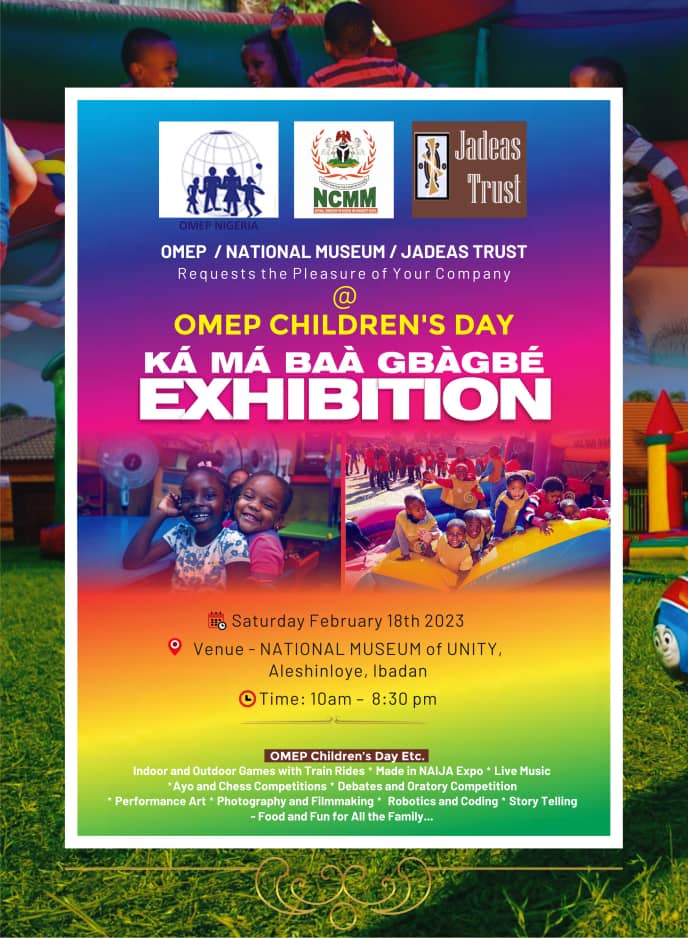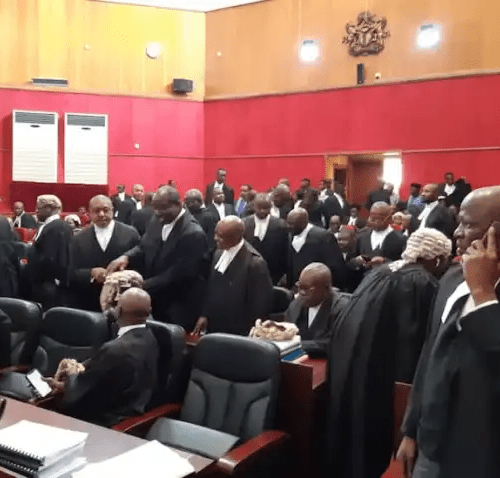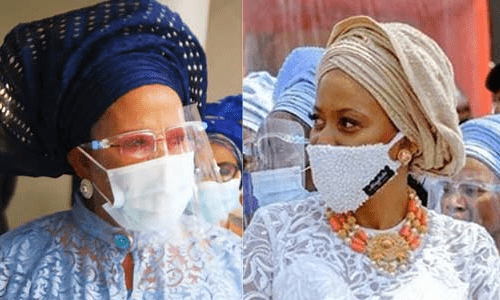By Taiwo Adekanye
The idea of KA MA BAA GBAGBE was conceived by late Emeritus Professor J.F Ade-Ajayi, an internationally renowned Professor of African history. It was a bid to preserve the arts, culture, and heritage of the Yorubas. Culture is the general way of life of a people, and if not passed from generation to generation, would go into extinction. Therefore there is a need to preserve the culture, arts, and heritage of the Yorubas and so the necessity to have an annual exhibition of Yoruba arts, culture, and heritage.
KA MA BAA GBAGBE, which means “so we don’t forget”, was the outcome of a discussion between late Emeritus Professor J.F Ade-Ajayi, then Chairman of Jadeas Trust, an educational and Cultural Foundation with a Global African focus, and late Chief Bola Ige. They both agreed it was a laudable idea and so the first edition/exhibition was produced by Jadeas Trust across the South West Region of Nigeria – with a launch event held on January 25, 2003 at the Cultural Centre, Ibadan, Oyo State. It had in attendance the then Alaafin of Oyo and the late Ooni of Ife.
Twenty years later, the second edition/exhibition is being held at the National Museum of Unity, Ibadan Oyo State on Saturday 18th February 2023, and Monday 20th February 2023. This year’s edition of KA MA BAA GBAGBE is being organized by Jadeas Trust in partnership with OMEP Nigeria, National Museum, and Tunde Ogunlade Arts and Culture Connexions.
OMEP (Organisation Modiale Pour l’Education Prescolaire) in English is World Organization for Early Childhood Education. OMEP is an international non-governmental organisation that focuses on the world’s children ages 0-8 years. Its objective is to ensure the education, health, nurturing, and general well-being of small children from birth to age eight. OMEP was formed in 1948 after Lady Allen of Hurtwood, a Briton, and Mrs. Alvan Myrdal of Sweden in 1946 led like-minded collaborators to draft plans for a world organisation that would exclusively promote the well-being, rights, and education of small children and preschool education. OMEP cooperates with other international organizations with similar aims.
Chief. (Mrs) Christie Ade-Ajayi was part of the pioneering group, mostly women who pushed for the establishment of an OMEP affiliate in Nigeria. Thus Nigeria was finally recognized as a full member of OMEP International at the 17th World Congress of the organization held in Geneva Switzerland in August 1983 and this led to the formation of the Nigerian Chapter of OMEP as well as the Oyo State Chapter in 1983. Mrs. Christie Ade-Ajayi thus became the first national Vice President of OMEP in 1983 and served for 10 years. She was also the first president of the Oyo State Chapter of OMEP which she served for several years.
Chief (Mrs). Christie Ade-Ajayi is a veteran early childhood educationist. Under her leadership as the Oyo State Chapter President, she facilitated the partnership of OMEP with UNICEF and IITA in grassroots development projects. These projects among others included the opening of rural daycare centers as well as a Day Care Centre for the Children of market women in the same Aleshinloye area which now houses the National Museum which coincidentally includes a Day Care Centre. OMEP also partnered with Van Leer Educational Trust to produce books in Yoruba, Igbo, and Hausa for female adult literacy classes.
Mrs. Ade-Ajayi has attended several OMEP World Congresses as a Nigerian delegate and also presented papers at some of the conferences. Notable among them was the Arizona World Congress (1992) held in the United States of America. Chief Mrs. Christie Ade-Ajayi delivered a paper titled “Collaboration with other International Agencies in Community Development Programs – The Nigerian Experience”. She said, perhaps OMEP’s greatest achievement in its formative years in the South Western part of the country was to convince the University of Ibadan to establish a certificate course in its Faculty of Education for nursery school teachers. This was in 1991 (a year before the World Congress in 1992).

According to her, “this is a major landmark in the history of OMEP Nigeria especially since the old teacher training colleges are no more except for the Nigerian Certificate in Education – NCE”. It is officially known as “The Certificate Course in Early Childhood Education”. It trains nursery and primary school proprietors and their teachers over two long vacations. Remarkably, the program still runs to date at the University of Ibadan.
It may be said that perhaps one reason why Mrs. Ade-Ajayi came to be referred to as the “Mother of OMEP” because since 1983, she has attended most of the Congress or Council meetings of the global organisation and in 2003, at the World Congress in Turkey, she received the Distinguished Lifetime Award of the OMEP World Council. Her baby, Oyo OMEP organizes an annual workshop for the proprietors and teachers of nursery and primary schools in the state.
The most visible aspect of the Oyo State Chapter activities was the annual celebration of OMEP Children’s Day. The first edition was held in 1984 under Mrs. Ade-Ajayi’s presidency. The usual pattern of the celebration was the gathering of notables in the state which included the wife of the current state governor. There would be hundreds of school children who, at the direction of their proprietresses would stage a march past and then perform all sorts of games and demonstrations for the guests and onlookers. Speeches were delivered and there was always good media coverage.
Some of the organisations which usually joined with OMEP in staging these annual rallies were UNICEF, Better Life for Rural Women, the Boys Brigade, WAI Brigade, Girls Guild, Local Government Councils and Media outfits.
The partnership between Jadeas Trust, OMEP and the National Museum of Unity at Aleshinloye led to an impactful launch event for the KA MA BAA GBAGBE EXHIBITION. Children and teenagers from OMEP Schools and various Secondary schools came together to enjoy a fun interactive experience as they learned about the rich culture, heritage, and tradition of the Yoruba race – So we do not forget!




















